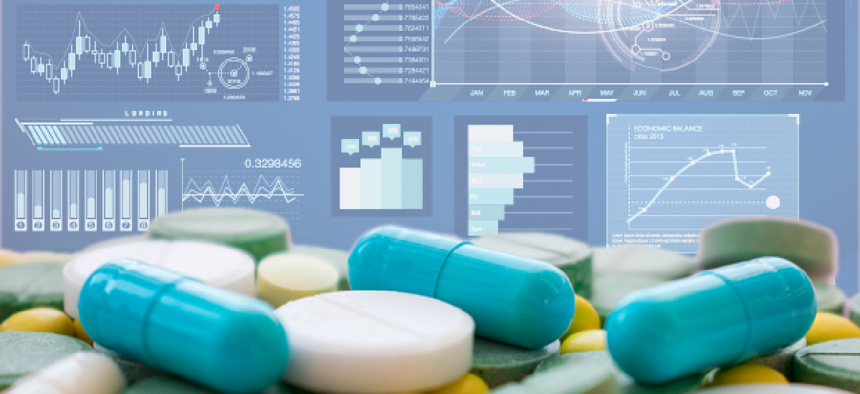HHS taps into nationwide drug-testing data


Connecting state and local government leaders
A clinical drug testing services provider is giving the Department of Health and Human Services near-real-time test results from all 50 states for free in an effort to combat the country’s drug overdose crisis.
A clinical drug testing services provider is giving the Health and Human Services Department near-real-time data on urine tests from all 50 states for free in an effort to combat the country’s drug overdose crisis.
The donation from Millennium Health -- its first such initiative -- will provide HHS with data from the company’s Emerging Threat Intelligence Program, which it developed specifically for this purpose. The program combines clinical and technological expertise to provide analyses based on the drug testing data the company collects.
Although the two parties are still working out the details of how the data will be shared, the plan is that Millennium Health will provide the department with deidentified and aggregated data in tabular and graphical formats, including heat maps showing where positive tests are coming from, said Angela Huskey, the company’s chief clinical officer.
“Innovations in things like cloud computing and data science have enabled us to do this more rapidly … because the data source contains millions and millions and data points,” Huskey said.
When HHS officials get the report, they will review it, determine what is significant and decide what actions to take based on the data, she added. Because the data comes from all 50 states, the District of Columbia and multiple medical practice types, it will provide more granular, community-level indicators of illicit drug use, Adm. Brett Giroir, HHS' assistant secretary for health, wrote in an email.
“This donation will improve HHS’ work with state and local officials on drug trends in their areas to target coordination of preventive health care resources to avoid overdoses,” Giroir said, adding that HHS will start receiving the reports this month and get a new one every two weeks.
At the core of the company’s Emerging Threat Intelligence Program is Intellium, its lab information and data intelligence platform. Clinicians use a portal to the platform to input test orders, receive results and conduct analytics based on those results, Millennium Health CIO Dave Henderson said.
The company uses standard procedures for deidentifying data, he said, ensuring that all personal health information is removed before the analysis stage so that there is no way to capture or pull it out from the database. Additionally, Millennium Health uses proprietary protocols for correlating and analyzing data for presentation to HHS.
Cloud helps, Henderson said, in working with the large amount of data. The company can use parallel processing to achieve efficiencies that are harder to get at scale with legacy tools.
The benefits of free access to scores of data points are many for HHS. “Access to frequent reporting of Millennium Health data will allow medical personnel, first responders and public health leaders to more quickly target resources and alert jurisdictions of a change in illicit drug use patterns, such as an irregular increase in the presence of carfentanil, an extremely potent fentanyl analogue,” or a type of synthetic opioid, Giroir said. “This data will inform the notifications to state and local health officials and may prompt other actions.”
What’s more, the effort supports HHS’ five-point “Strategy to Combat Opioid Abuse, Misuse and Overdose.” Issued in 2017, one point called for strengthening “public health data reporting and collection to improve the timeless and specificity of data, and to inform a real-time public health response.”
Millennium Health sees upsides, too, Huskey said. “There’s significant benefit in us simply knowing that the donation of this data is meeting a need and will provide HHS with an opportunity to more quickly alert local health officials about drug trends in their communities,” she said. “We’re very hopeful that the specificity that we’re giving them in the data allows them to better deploy resources.”
The agreement came about after the company presented data from the Emerging Threat Intelligence program and its potential benefits and uses to Giroir’s office. The agreement is in effect until Dec. 20, but Huskey said the company hopes to connect with subagencies of HHS on future initiatives. What’s more, Millennium Health is working on capabilities to not only describe trends, but predict them, she said.




